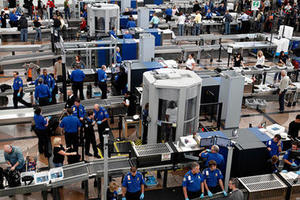Airport screeningStudy shows TSA security screeners are methodical, not slow
A study by Duke University, partially funded by DHS, found that TSA screeners may be slower than amateur screeners when it comes to performing visual searches, but the TSA screeners are better at detecting contraband.

Study shows TSA screeners slower, but more thorough // Source: thanhnien.com.vn
A study by Duke University, partially funded by DHS, found that TSA screeners may be slower than amateur screeners when it comes to performing visual searches, but the TSA screeners are better at detecting contraband.
Duke’s Department of Psychology and Neuroscience monitored 206 TSA agents and ninety-three university students in a visual search test. The two groups were asked to find the letter T on a computer screen full of images of the letter L.
The researchers who set up the study measured the speed and accuracy of more than 256 tests per participant. The TSA agents were also split into two groups, those with less than three years experience and those with more than six years experience.
University students were 82 percent accurate and TSA agents had an 88 percent accuracy rate, but the students were quicker, completing each test in under four seconds on average, while the TSA agents’ average was more than six seconds per test. The researchers concluded this relative “slowness” was an indication that the experience TSA agents gain from searching for weapons and explosives in luggage makes them more methodical at performing visual searches.
Adam Biggs, a postdoctoral associate in Duke’s Center for Cognitive Neuroscience, says the TSA agents were slower during the tests because their training forces them to take more into consideration.
TSA does not discuss error rates on tests it gives agency employees, but a TSA report released in 2007 said screeners at Los Angeles International Airport missed 75 percent of fake explosives that passed through the airport.
“Transportation Security Officers effectively and efficiently screen nearly 2 million passengers per day, relying on a variety of techniques to ensure the safe transportation of passengers,” TSA spokesman David Castelveter said in response to the Duke study.
